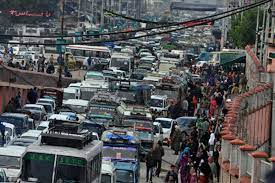Beyond the Shadows: Examining the Use of the Public Safety Act in Post-Pahalgam Kashmir
By: Javid Amin
Srinagar 21 May 2025: The recent detentions under the Public Safety Act (PSA) in Jammu and Kashmir, following the tragic Pahalgam attack, have reignited debates surrounding the balance between national security and individual rights. With over 90 individuals detained—many based on past records or social media activity—the application of the PSA has come under scrutiny from legal experts, human rights organizations, and the families of those affected. This article delves into the complexities of the PSA’s implementation, its legal framework, and the broader implications for civil liberties in the region.
Understanding the Public Safety Act (PSA)
Enacted in 1978, the Jammu and Kashmir Public Safety Act allows for preventive detention of individuals without trial for up to two years if they are deemed a threat to public order or state security. Originally intended to curb timber smuggling, its scope has expanded over the years, often encompassing political activists, journalists, and individuals with alleged separatist ties. Critics argue that the PSA’s broad provisions and lack of stringent safeguards make it susceptible to misuse.
Detentions Post-Pahalgam Attack: A Closer Look
In the aftermath of the Pahalgam attack, security forces have intensified operations across Jammu and Kashmir. Reports indicate that over 3,000 individuals have been arrested, with nearly 100 detained under the PSA . Notably, many of these detainees were previously arrested as minors or had old social media posts cited as evidence against them. Families contend that their relatives had reformed, raising concerns about the fairness and proportionality of these detentions.
Legal and Human Rights Concerns
1. Detention of Minors
International human rights standards, including the United Nations Convention on the Rights of the Child, emphasize the need for special protection of minors. However, instances have emerged where individuals detained under the PSA were minors at the time of their alleged offenses. For example, Rauf Ahmad Wagay was 16 when detained under the PSA, highlighting potential violations of both domestic and international legal norms .
2. Use of Social Media as Evidence
The reliance on old social media posts as grounds for detention raises questions about freedom of expression and the right to privacy. Legal experts argue that such evidence, especially when not linked to any recent unlawful activity, may not meet the threshold required for preventive detention.
3. Lack of Due Process
The PSA allows for detention without formal charges or trial, often with limited access to legal representation. This lack of due process has been a longstanding concern, with human rights organizations labeling the PSA as a “lawless law” that undermines the rule of law .
Judicial Oversight and Challenges
While the PSA mandates the establishment of an Advisory Board to review detention orders, the effectiveness of this mechanism has been questioned. A study revealed that the Advisory Board upheld 99.4% of detention cases, many of which were later quashed by the High Court due to vague or non-existent grounds . This discrepancy underscores concerns about the impartiality and rigor of the review process.
Impact on Families and Communities
The detentions have profound implications for the families of the detainees. Many come from low-income backgrounds, making it challenging to access legal recourse or visit relatives held in distant prisons. The psychological toll on families, coupled with the stigma associated with detention, exacerbates social tensions and feelings of alienation within communities.
Calls for Reform and Accountability
In light of these concerns, various stakeholders have called for reforms to the PSA. Recommendations include:
-
Strict Adherence to Legal Safeguards: Ensuring that detentions, especially of minors, comply with both domestic laws and international human rights standards.
-
Transparent Review Mechanisms: Reconstituting the Advisory Board to include judicial members and enhancing its independence.
-
Limiting the Use of Preventive Detention: Employing the PSA only in cases where there is compelling evidence of an imminent threat to public order.
-
Community Engagement: Involving civil society and local leaders in dialogues to address security concerns without resorting to mass detentions.
Bottom-Line
The use of the Public Safety Act in Jammu and Kashmir, particularly in the wake of security incidents like the Pahalgam attack, underscores the delicate balance between ensuring public safety and upholding individual rights. While the state has a legitimate interest in preventing violence and maintaining order, it must also ensure that its actions do not infringe upon the fundamental rights of its citizens. A re-evaluation of the PSA’s application, with an emphasis on transparency, accountability, and adherence to legal norms, is imperative to foster trust and promote justice in the region.



